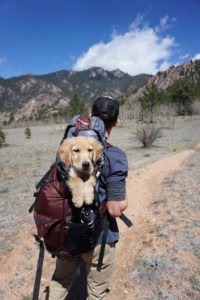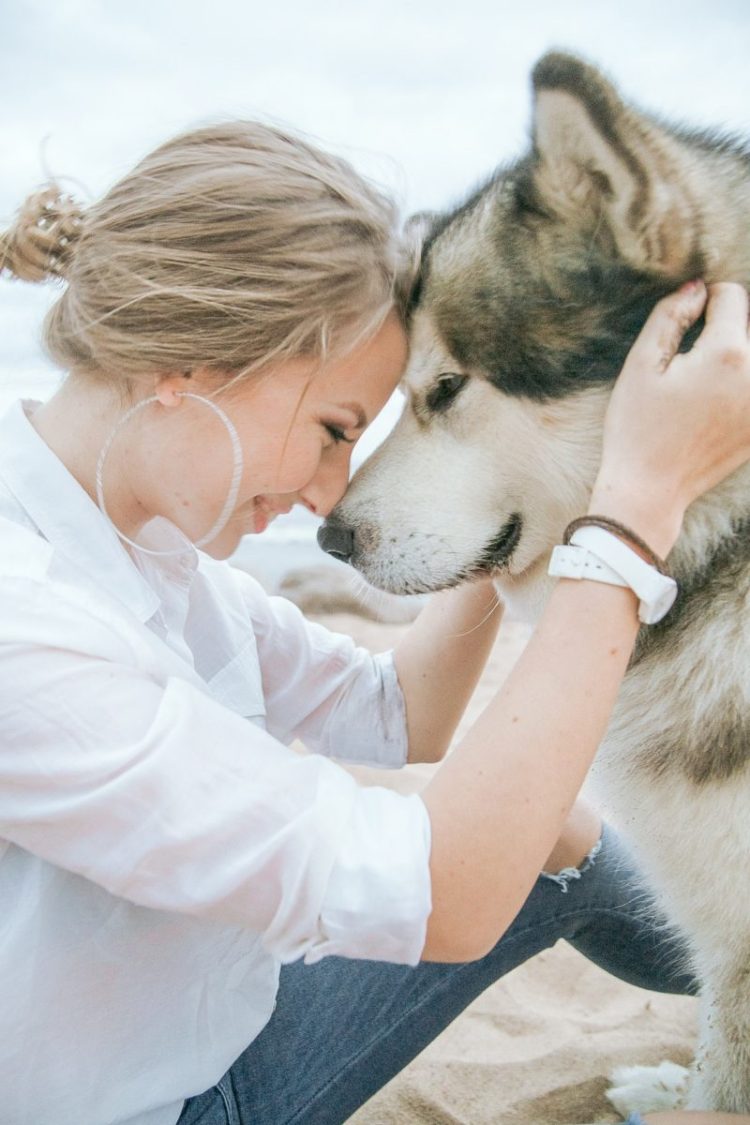What to Consider Before Getting a Dog
Getting a dog for the first time is a big adventure and a big commitment at the same time. Remember, a living, breathing, pet is a long-term obligation and they will depend on you to provide for their every need. Depending on what kind of dog you choose, you’re looking at anywhere between 10 to 20 years, of being a dog owner. So here are at least 13 important things to consider before getting a dog.
Before You Commit
Deciding to get a dog shouldn’t be a spontaneous choice or impulse. Often when people impulsively take home a cute puppy, the dog eventually ends up at a shelter because the people didn’t realize the implications of committing to dog ownership and the responsibility involved.
1. Make Sure You Really Want a Dog
Owning a dog is not all fun and games. They can be costly, energetic, messy, strong-willed, destructive, and noisy. You need to really consider if you are ready for such a long-term commitment. You might be crazy about dogs but playing with the neighbor dog and owning one of your own, is an entirely different ballgame.
Cute puppies grow up into adult dogs that may demand a lot of time and energy from you.
2. Research Before You Choose
A little puppy is always cute and fun, but they typically have a lot of energy and will need tons of attention. If you do not have a lot of time and energy to spend socializing and training an active puppy, and you do not feel up to cleaning up little “oopsies” while house-training your puppy, then perhaps you should look at adopting an adult dog.
An adult dog may not need as much maintenance as a puppy, but it may have some habits that still need some training. Most adult dogs come already housetrained and, especially when adopting a senior dog, their energy level will likely be much lower than a puppy.
Besides thinking about whether you want a puppy or an adult dog, the breed of dog that you would like to adopt is an important aspect to consider. Each breed has its own rewards and challenges. Don’t just pick a dog because you like how they look. The personality is a much more important factor to keep in mind.
Do some research on different dog breeds. For example, search “Best dog breeds for apartment living.” Once you’ve selected a breed, research what to expect when your new dog joins your family. Be honest with yourself about your lifestyle. For example, if your idea of relaxation is binging on Netflix, don’t get a dog that loves exploring the outdoors. There are dog breeds that don’t need a ton of exercise and would be a great couch potato companion. Alternatively, don’t pick a breed that just wants to lay around if you’re planning to take your dog hiking and canoeing.

3. FIRST, Consider Fostering or Adopting
Fostering a pet before adopting can be a great way to determine if you’re ready for the commitment. Chat with your local shelter to find out if they have this option and what you can do if you want to adopt the dog permanently. Adopting is always a great choice. Shelters are full of perfect pets waiting for the perfect family.
Prepping for your new family member
Now that you’ve made the choice to become a dog owner, there are a few basic things to consider to help make the transition easier on both of you.
4. Dog-Proof Your Home
Almost the same as baby-proofing. Your four-footed fur-baby will love to explore every inch of your home. Make sure that the areas are safe. In the beginning, it’s a good idea to keep your dog in a specific area in your house where it won’t get overwhelmed, damage anything when you’re not looking, or worse, get hurt.
Make sure there are no poisonous houseplants around such as mistletoe, poinsettia, amaryllis, and holly. There are MANY more so please do yourself a favor and search the plants you do have and be sure they’re not poisonous. Here’s a printable list from ASPCA. Some plants can be toxic and have a low reaction level in a dog, but others can be fatal, so again, do your research if you’ve got plants anywhere near where your dog may be exploring. Lock up cleaning supplies and medicines. Block access to elevated porches, balconies, and decks for now. Also, keep the toilet lid closed, secure electrical cords and remove any plastic materials your dog may want to taste.
You should definitely not leave the dog unsupervised if it has access to your whole house. Buy proper toys for the chew satisfaction dogs need and reward the dog for chewing the right things. If it’s a puppy or young dog, start with training as soon as possible, it will definitely make your life with the new family member much easier.
5. Visit Your Veterinarian Regularly
You are now responsible for the dog’s wellbeing. An important aspect of this includes regular checkups with a veterinarian, at least once a year for checkups. You may also want to consider dog health insurance for the unavoidable and unexpected. If you adopted from a shelter, it’s likely your dog will already be spayed or neutered but if you buy a puppy, this should be your top priority, along with microchipping in the unfortunate case your dog ever slips away from you. Microchipped pets can be returned to their owner much faster and more assuredly.
6. Feed Your Dog Properly
This doesn’t just mean enough food, it entails a well-balanced nutritional diet. You will notice that there are specifically formulated dog foods for specific breeds, sizes, ages, weights, etc. Find a formula that works for your dog. This can take some time but it’s worth it when your dog is healthy and at a happy weight. Carefully read the product labels to ensure your dog is getting the correct balance of fat and protein.
Also, stick to the recommended serving size and feeding schedule. Don’t feed your dog any table scraps, or big snacks between meals. Human grade diets are great to consider but that’s another blog post if you prefer to skip the kibble and feed natural foods for your dog.
7. Train Your Dog
As mentioned above, you should start training your dog right away. Puppies especially, but even an older dog can benefit from some training when they join your family.
Reward your dog with lots of praise and some healthy treats. I used cut up small, frozen green beans, blueberries, and small chunks of apple! My dog also loves frozen fruit bits. These are very high value treats for him. Find high value healthy treats and your training will be a snap!
Dogs love affirmation and attention, the more fuss you make over the dog doing something right, the more responsive it will be.
If you chose to get a puppy, house-training can be tricky, but it doesn’t have to be. The secret to success is consistency. In the beginning, your puppy will need a bathroom break about 20 to 30 minutes after eating. Take the puppy outside to the spot where you want it to go and use a command such as “go potty.” Remember to offer plenty of praise when it obeys. Crate training is the fastest way to house-train a puppy and crates are an invaluable tool for any new dog. I have a blog post on that as well because I believe so strongly about crate training.
8. Be Patient and Kind
Your dog is new to you, your home, your car, other family members, and your routines. It has a lot of new things to learn and experience.
You will probably need to exercise some patience in the beginning. Be patient with the learning curve your new dog will go through. With proper love and kindness, your dog will prove to be a great companion.
New Dog Checklists

9. More Things to Think About and Questions to Ask Yourself:
- Do you have any other dogs and how will they react to a new pet?
- Is your current residence suited to the dog you’re considering?
- How will your social life or work obligations affect your ability to care for a dog?
- Do you have a plan for your new dog during vacations and/or work travel?
- How do the people you live with feel about having a dog in the house?
- Are you (or your spouse, partner or roommate) intolerant of hair, dirt and other realities of sharing your home with a dog, such as allergies?
- Do you or any of your household/family members have health issues that may be affected by a dog?
- What breed of dog is the best fit with your lifestyle? (You can find information on specific breeds in this dog breed directory on the American Kennel Club)
- Is there any tension in the home? Dogs quickly pick up on stress in the home, and it can intensify their health and/or behavior problems.
- Is there an adult in the family who has agreed to be ultimately responsible for the dog’s care?
- If you are thinking of adopting a young dog, do you have the time and patience to work with the dog through its adolescence, taking house-breaking, chewing and energy-level into account?
- Can you train and handle a dog with behavior issues or are you looking for an easy-going friend?
- Do you need a dog who will be reliable with children or one you can take with you when you travel?
- Do you want a dog who follows you all around the house or would you prefer a less clingy, more independent character?
10. Dog Size Considerations:

- What size dog can your home accommodate?
- Will you have enough room if your dog grows to be bigger than expected? It’s sometimes hard to tell how big a rescued puppy with mixed lineages will grow up to be.
- What size dog would suit the other people who live in or visit your home regularly?
- Do you have another dog to consider when choosing the size of your next dog?
- How big of a dog can you travel comfortably with?
11. Dog Costs Considerations:
- More likely than not, the adoption facility will charge an adoption fee to help offset the cost of taking in homeless or abandoned animals. The adoption fee you pay will be a tiny fraction of the money you will spend over the life of your dog.
- Some expenses are mandatory for all dogs, including:
- Food
- Routine veterinary care
- Licensing according to local regulations
- Collars, leashes and identification tags
- Basic grooming equipment and supplies
- Here are some other expenses that may not be required but are highly recommended:
- Permanent identification, such as a microchip
- Training classes
- Additional grooming supplies or professional grooming (depending on your new dog’s needs.)
- A spare collar or leash
- A bed and toys
- A crate or carrier
- Unexpected costs: Accidents and illness can result in costly emergency veterinary care. Recovery tools for finding a missing dog can include posters and rewards.
- A dog with special physical or behavioral challenges may require specialized professional support to overcome any problems these issues present.
12. Time Considerations:
- Dogs need to be fed two to three times a day, more often in the case of puppies, and need a constant supply of fresh water.
- A responsible dog parent should spend at least one hour per day giving direct attention to his or her dog. This may include training, exercising, grooming, and playing.
- Dogs will need to be taken out to potty several times a day.
- A dog with an abundance of energy needs more time to exercise and would benefit from interactive, puzzle-type toys to keep them entertained.
- Dogs with long coats may need 10-15 minutes a day of grooming to prevent matting.
- Dogs with certain medical conditions may need special attention, including specifically timed injections in the case of diabetic animals.
- Remember that adopted dogs may need additional bonding and reassurance time in the early weeks.
Shopping Checklist:
It may be a good idea to wait until you select your new dog before you begin shopping for supplies. For example, some items, such as food and water bowls or collars and harnesses, depend upon the size of the dog you will be adopting.
Also, be sure to find out which food your dog was eating in the shelter or foster home so that you can provide the same in the beginning, to ease the transition of feeding the food you will ultimately end up feeding.
Once you’ve selected your dog, here’s a checklist of supplies you may need:
13. Necessary Items for Dogs:
- Food and water bowls (stainless steel)
- Food (canned and/or dry)
- Collar
- Four to six-foot leash
- ID tag with your phone number
- Hard plastic carrier or foldable metal crate
- Dog bed to fit your dog as an adult.
- Doggy shampoo and conditioner
- Nail clippers
- Canine toothbrush and toothpaste
- Brush or comb (depends on your dog’s coat length and type)
- Enzymatic odor neutralizer (especially for puppy house-breaking stage)
- Plastic poop baggies (biodegradable ones are best) or pooper scooper
- Absorbent house-training pads (if this is the route you’ll take instead of house-breaking)
- Variety of toys (balls, stuffed buddies, sturdy chew toys and puzzle toy are good starts)
- Variety of treats (fresh fruits and veggies are best)
- First-aid supplies
- Baby gate(s) (to keep your dog out of certain areas)
Wrapping it up
So, there you have it, I know it’s way more than 13 important things to consider before getting a dog but owning a dog for the duration of its life is a huge commitment. There’s lots to consider before getting a dog but if you learned anything in this article, I hope it was to have an abundance of patience you’re your new family member. Remember to lower your expectations. Life with you is a different experience for your new companion, so give them time to adjust. You’ll soon find out that you’ve made a friend for life. No one will ever greet you with as much enthusiasm or provide you with as much unconditional love and loyalty as your dog will. Be patient, and you will be copiously rewarded.
On the other hand, maybe…after reading this article and considering all the aspects of owning a dog, maybe a cat would fit more beautifully into your lifestyle. Here’s a post where I cover many reasons cats are great companions.
If you enjoyed this article or found value in it, please share it. Or, comment below on what you got out of it.
Did you decide to adopt a dog or not? I’d love to know.

